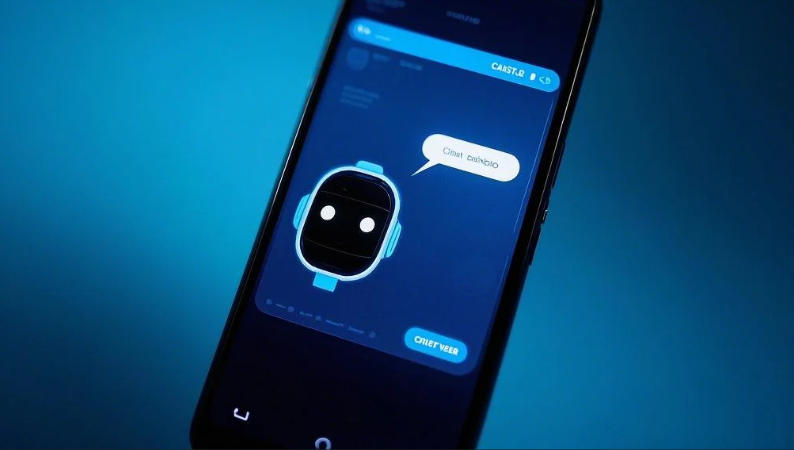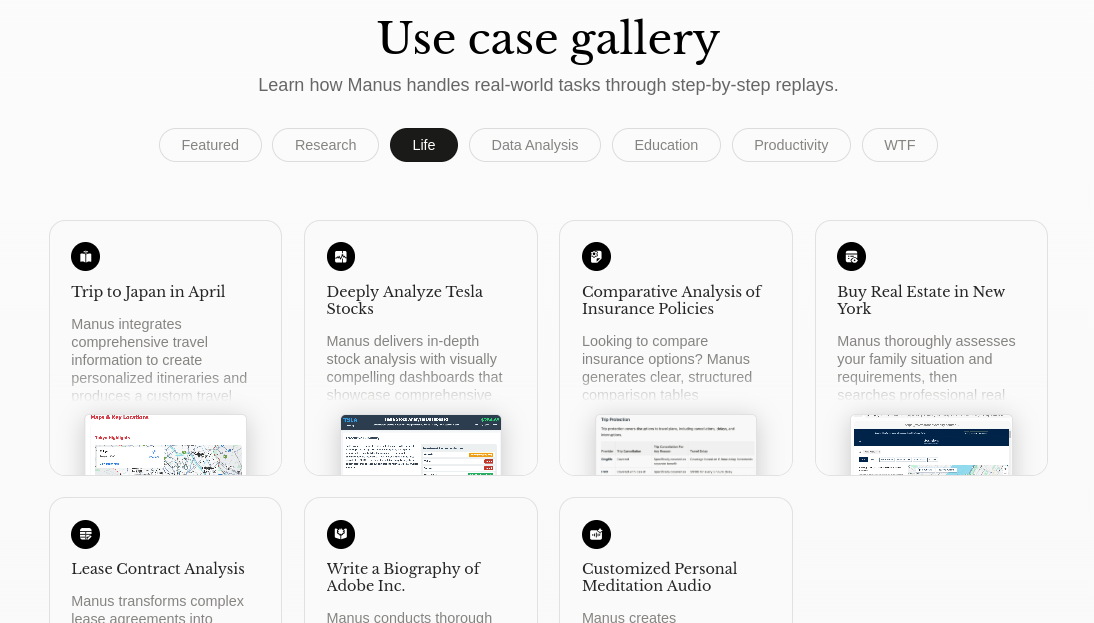 AI
AI
 AI
AI
 AI
AI
Just weeks after Chinese artificial intelligence developer DeepSeek Ltd. shocked the world with its low-cost alternative to OpenAI’s ChatGPT, another Chinese startup is making similar noise, releasing what it claims is one of the most advanced autonomous AI systems yet available.
It’s called Manus AI, and it’s said to be a next-level AI system that “bridges minds and actions,” by not just processing information but delivering complete results on behalf of its users. Created by a company called Monica, it was launched on March 6 and has already gotten global attention, with its creators saying it surpasses OpenAI’s DeepResearch model on the GAIA benchmark.
Whereas AI chatbots such as ChatGPT, Grok and Google’s Gemini require human input to perform tasks, Manus can make decisions progressively and complete various tasks independently, its creators claim. As such, it doesn’t need to wait for the user to provide it with instructions before it does something.
As an example, if a user asks it to “find me an apartment,” Manus will not just look through various real estate listings, but also research and evaluate multiple factors such as crime rates, weather and commute times to provide more specific recommendations.
Manus doesn’t use one specific model. In fact, it uses multiple sub-agents that are specialized in different areas, which allows it to perform complex, multistep workflows with ease. In addition, it works asynchronously, which means it runs in the background, notifying users only when its output is ready.
Media reports have been ablaze with stories of how Manus is a game-changer, representing a shift toward fully independent AI systems that can operate without humans guiding them. It raises exciting possibilities, and also increases fears about AI replacing human workers and, perhaps, taking on too much responsibility.
Got access and it’s true… Manus is the most impressive AI tool I’ve ever tried.
– The agentic capabilities are mind-blowing, redefining what’s possible.
– The UX is what so many others promised… but this time it just works.prompt: “code a threejs game where you control a… pic.twitter.com/rUD2XV4ZVK
— Victor M (@victormustar) March 8, 2025
In a glowing report, Forbes claims that Manus promises to “change everything” by trampling on the idea that the U.S. is the uncontested leader in AI development. It says Manus is proof that China has not only caught up with the U.S., but potentially overtaken its rival in the race to develop fully autonomous AI agents.
There’s no doubt that Manus has some interesting real-world applications. For instance, Manus has the ability autonomously to analyze resumes, cross-reference job market trends and produce the most desirable candidates out of a pool of job applicants, complete with a detailed report on each one.
Manus can also lend itself to software development, quickly generating a website from scratch, its creators say. Once it has a design in place, it can even deploy that website online, resolving any technical issues with hosting and the like.

Such capabilities suggest Manus could represent a real threat to human workers, since it has the ability to actually replace some roles rather than just improving their efficiency. In turn, this raises ethical questions and also regulatory concerns.
For instance, beyond causing mass unemployment, what would happen if an autonomous AI agent makes a costly mistake that causes a business to lose millions of dollars? Who would be responsible for that? At present, regulators seem unequipped to deal with the prospect of independent AI agents.
Then again, it may be that Manus doesn’t live up to the hype. For now, the AI agent is only available to use to select beta testers, with access being invite-only.
The creators of Manus say they’re still working to scale Manus and iron out any issues reported by users, but multiple reports suggest they may have their hands full. Among other things, there have been claims of numerous error messages and endless loops from users testing Manus, reports of mistakes on factual questions, a failure to cite its results and schoolboy errors such as this one:
Even for one of the biggest companies in the world with countless reports online, Manus makes easy to spot mistakes, missing the Nintendo Switch entirely.
Pretty sure where it got the numbers from, but no references in the report, either. https://t.co/kdLDoab1by pic.twitter.com/wxmTRr3TBW— Xeophon (@TheXeophon) March 9, 2025
TechCrunch’s Kyle Wiggers, who has early access, also reported multiple instances where Manus failed to perform seemingly trivial tasks such as ordering a sandwich, booking a hotel room or developing a Naruto-inspired fighting game.
That said, others have been thoroughly impressed with Manus, and it’s undeniably the case that it took the internet by storm over the weekend, with reports of astounded users popping up all over the place.
It remains to be seen if the creators can fix the initial teething problems, but in any case the arrival of Manus is set to provide further challenges to the assumption that Silicon Valley’s leading tech companies will have it all their own way in the race to dominate AI.
Support our mission to keep content open and free by engaging with theCUBE community. Join theCUBE’s Alumni Trust Network, where technology leaders connect, share intelligence and create opportunities.
Founded by tech visionaries John Furrier and Dave Vellante, SiliconANGLE Media has built a dynamic ecosystem of industry-leading digital media brands that reach 15+ million elite tech professionals. Our new proprietary theCUBE AI Video Cloud is breaking ground in audience interaction, leveraging theCUBEai.com neural network to help technology companies make data-driven decisions and stay at the forefront of industry conversations.